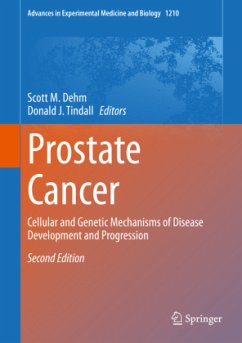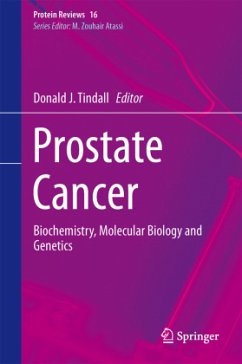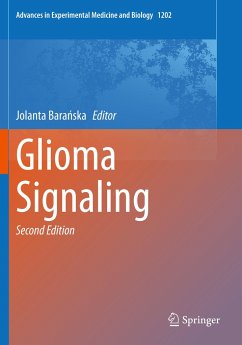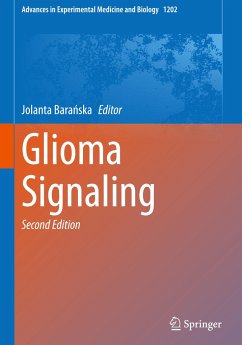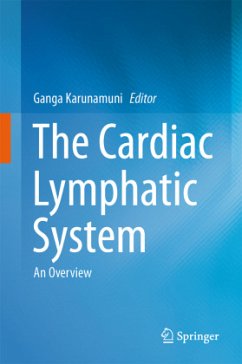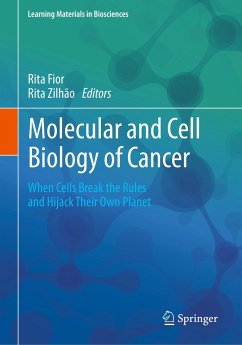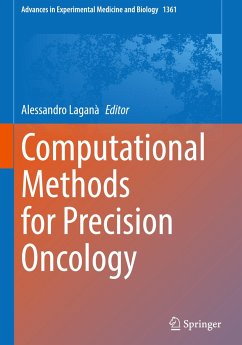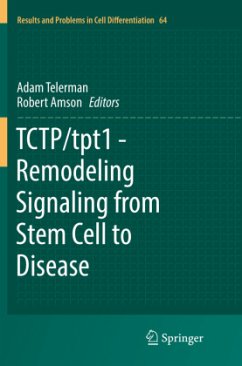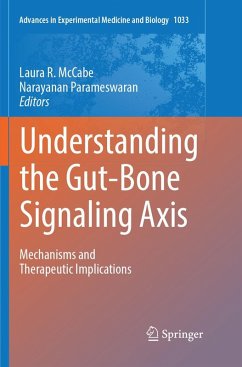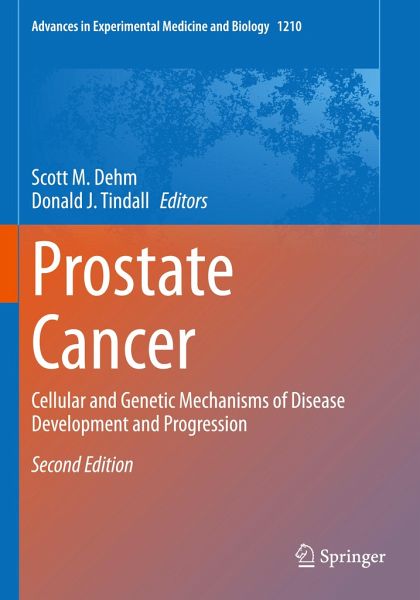
Prostate Cancer
Cellular and Genetic Mechanisms of Disease Development and Progression
Herausgegeben: Dehm, Scott M.; Tindall, Donald J.
Versandkostenfrei!
Versandfertig in 6-10 Tagen
166,99 €
inkl. MwSt.

PAYBACK Punkte
83 °P sammeln!
The purpose of this book is to provide a contemporary overview of the causes and consequences of prostate cancer from a cellular and genetic perspective. Written by experts in the fields of epidemiology, toxicology, cell biology, genetics, genomics, cell-cell interactions, cell signaling, hormone signaling, and transcriptional regulation, the text covers aspects of prostate cancer from disease initiation to metastasis.Chapters explore in depth the cells of origin for prostate cancer, its genomic subtypes, neural transcription factors in disease progression, epigenetic regulation of chromatin, ...
The purpose of this book is to provide a contemporary overview of the causes and consequences of prostate cancer from a cellular and genetic perspective. Written by experts in the fields of epidemiology, toxicology, cell biology, genetics, genomics, cell-cell interactions, cell signaling, hormone signaling, and transcriptional regulation, the text covers aspects of prostate cancer from disease initiation to metastasis.
Chapters explore in depth the cells of origin for prostate cancer, its genomic subtypes, neural transcription factors in disease progression, epigenetic regulation of chromatin, and many other topics. This book distinguishes itself from other texts on prostate cancer by its focus on cellular and genetic mechanisms, as opposed to clinical diagnosis and management. As a result, this book will be of broad interest to basic and translational scientists with familiarity of these topics, as well as to trainees at earlier stages of their research careers.
Chapters explore in depth the cells of origin for prostate cancer, its genomic subtypes, neural transcription factors in disease progression, epigenetic regulation of chromatin, and many other topics. This book distinguishes itself from other texts on prostate cancer by its focus on cellular and genetic mechanisms, as opposed to clinical diagnosis and management. As a result, this book will be of broad interest to basic and translational scientists with familiarity of these topics, as well as to trainees at earlier stages of their research careers.



